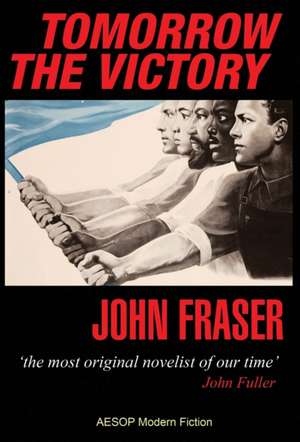Tomorrow the Victory
Autor John Fraseren Limba Engleză Hardback – apr 2019
Preț: 154.97 lei
Nou
Puncte Express: 232
Preț estimativ în valută:
29.65€ • 31.04$ • 24.68£
29.65€ • 31.04$ • 24.68£
Carte tipărită la comandă
Livrare economică 31 martie-14 aprilie
Preluare comenzi: 021 569.72.76
Specificații
ISBN-13: 9781910301500
ISBN-10: 1910301507
Pagini: 214
Dimensiuni: 145 x 222 x 16 mm
Greutate: 0.45 kg
Editura: Aesop Publications
ISBN-10: 1910301507
Pagini: 214
Dimensiuni: 145 x 222 x 16 mm
Greutate: 0.45 kg
Editura: Aesop Publications
Notă biografică
John Fraser lives near Rome. Previously, he worked in England and Canada. Of Fraser's fiction the Whitbread Award winning poet John Fuller has written: 'One of the most extraordinary publishing events of the past few years has been the rapid, indeed insistent, appearance of the novels of John Fraser. There are few parallels in literary history to this almost simultaneous and largely belated appearance of a mature ¿uvre, sprung like Athena from Zeus's forehead; and the novels in themselves are extraordinary. I can think of nothing much like them in fiction. Fraser maintains a masterfully ironic distance from the extreme conditions in which his characters find themselves. There are strikingly beautiful descriptions, veiled allusions to rooted traditions, unlikely events half-glimpsed, abrupted narratives, surreal but somehow apposite social customs.'
